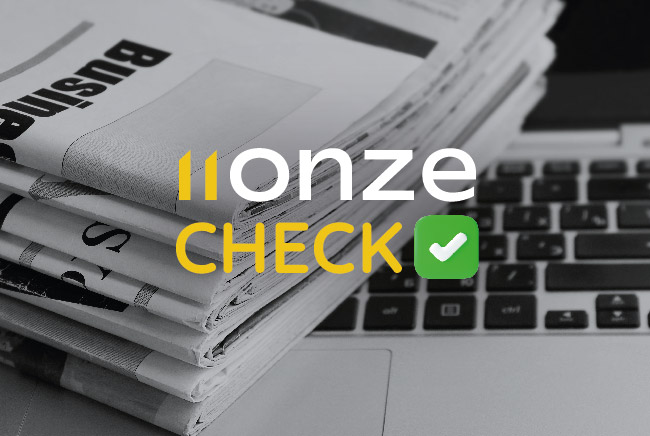

The scourge of crony capitalism
For many years, the Western economic model has been characterised by a system of crony capitalism based on the promiscuous relationship between politics and business. An endemic evil that affects, to a greater or lesser extent, the vast majority of countries.
Xavi Viñolas, 11Onze editor
Crony capitalism is a term used to describe a capitalist system in which business success depends on mutual favours between businessmen and politicians. These relationships often lead to government policies that benefit a few companies or individuals to the detriment of the interests of the public, which end up instrumentalised by the powers that be.
The use of political connections to secure preferential treatment or unfair advantage can take the form of public contracts, subsidies, or regulations and laws that favour a select group of companies or individuals. Commissions, bribes, and revolving doors from politicians to big business are part of the lexicon that accompanies this practice of nepotism and corruption, which, unfortunately, no longer surprises anyone.
In this context, economic activity does not follow the principles of a free market economy designed to serve the consumer with the best products, but to maintain the favour of political power through businesses or lobbies that corrupt public officials, generating inefficiencies, fostering oligopolies, slowing economic growth and eroding trust in the political class.
The 2008 global financial crisis is an excellent example of how collusion between financial institutions and governments can lead to risky and irresponsible practices by monopolies that control the market, causing economic devastation that taxpayers end up paying for by rescuing banks from bankruptcy with public money.
Political disaffection
One of the most serious consequences of widespread government corruption and abuse of power is that citizens become disengaged from the political process. The apathy and cynicism of a population, which sees public officials using their positions for their own benefit, manifests itself in low voter turnout and the destruction of the moral fibre of society.
If the lack of transparency and oversight weakens trust in government institutions and makes politicians unaccountable for their actions, it is difficult to convince citizens that social and economic improvements are achieved by putting into practice ethical values such as effort, hard work and honesty.
The lack of credibility associated with governments is compounded by a two-party political system, de jure or de facto, established throughout the Western world, which in many cases does not even favour two parties or political coalitions antagonistic to each other. On the contrary, it is often a matter of two political actors sharing power in a cyclical fashion, but with little difference in the implementation of policies that benefit the establishment that acts outside the institutions.
No information, no accountability
A free press is the cornerstone of democratic societies. It serves as a check on government power and promotes transparency and accountability. Without a free press, citizens would not have access to the information they need to make informed decisions and hold their leaders accountable.
Unfortunately, much of the media has become a mouthpiece for economic and political elites. Far from reporting on government actions or corporate malpractices, the journalistic narrative often contributes to their propaganda while whitewashing corruption, ensuring the impunity of elected officials.
This reveals an unwillingness to serve the public interest, preventing citizens from being aware of government actions that may involve conflicts of interest. This is a bleak picture that is unlikely to change unless civil society organises to empower citizens through information and education, enabling them to make decisions that guarantee their fundamental rights.
11Onze is the community fintech of Catalonia. Open an account by downloading the super app El Canut for Android or iOS and join the revolution!





La societat civil, penso, s’ha d’implicar més, començant, potser, per les associacions de veïns.
Totalment d’acord. Gràcies, Pere
Molt bon article
Celebrem que t’hagi agradat, Manel, i moltes gràcies pel teu comentari!!!
👍
Gràcies, Jordi!!!
Gràcies!
Són coses que s han de dir. Perquè encara que ens vulguin fer veure que no hi són, passen.
Brilliant i encertades reflexions sobre la realitat política del món occidental. Sens dubte, una praxis a combatre amb contundència en un futur no gaire llunyar!
👍👏👌
👌Quina radiografia i quina lliçó! La corrupció
s’encomana, gairebé ningú no plega quan s’adona com funciona el sistema. Ens hi hem acostumat perquè és una manera d’ exercir el poder i aprofitar-se’n, sense violència, mai no provoca una ruptura.
Ben cert, Mercè! De mica en mica, mirem d’obrir els ulls als qui ho desconeixen des de La Plaça. Gràcies pel teu comentari!